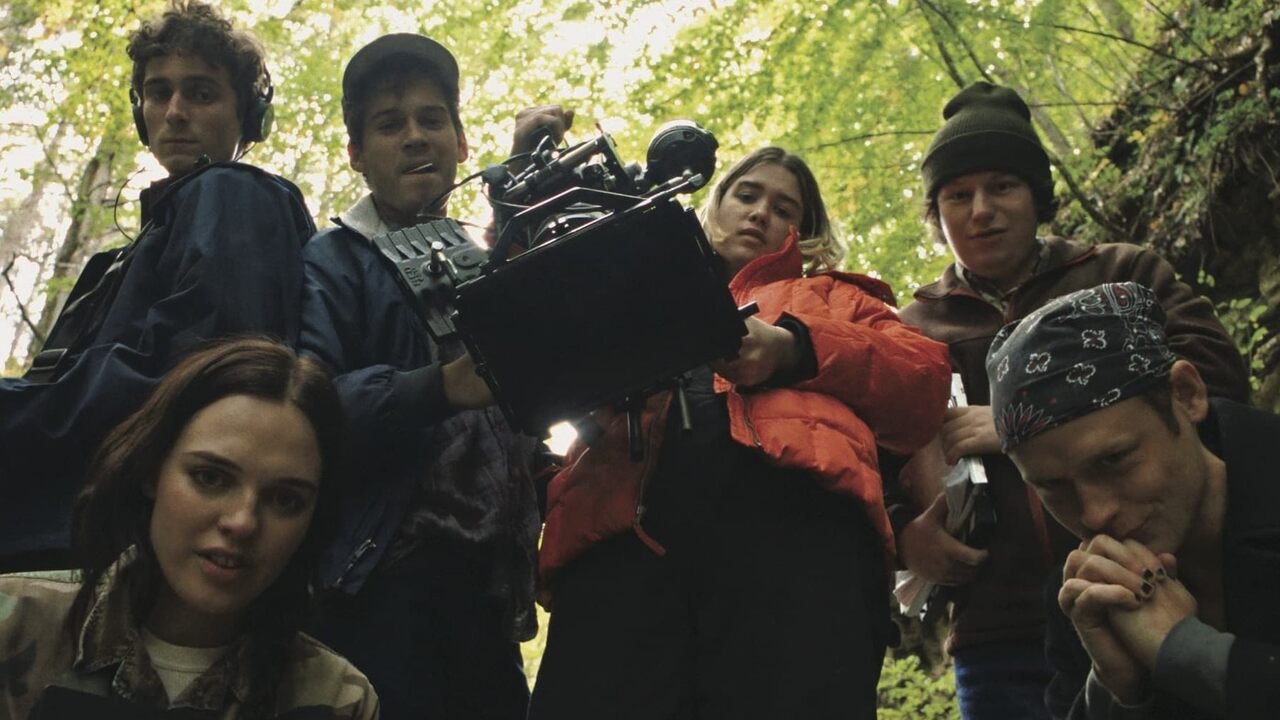
It's a purposefully ironic confession for a film called "My First Film," yet it perfectly sets the tone for what’s to come. In 2018, filmmaker Zia Anger stepped onto the stage at a Brooklyn venue and began an unconventional presentation. Sitting before the audience, she projected video clips from a project she had once shot and then abandoned years earlier—an unfinished film titled “Always All Ways, Anne Marie”. Accompanying the footage were her spoken and typed words, an intimate and raw commentary that blurred the line between creator and audience. This presentation soon transformed into a live performance, which Anger took on tour under the name “My First Film”.
As the world entered lockdown during the pandemic, Anger’s creation adapted yet again, evolving into a digital performance. Although rooted in the personal and experimental nature of her live shows, this version began to toy with the boundaries of fiction and reality—or perhaps autofiction—creating something that leaned closer to a traditional film in appearance but remained defiantly unconventional in execution.
In “My First Film”, Odessa Young stars as Vita, a character who acts as a stand-in for Zia Anger herself. Through Vita’s eyes, the audience witnesses the story of the making of Anger’s first abandoned project, “Always All Ways, Anne Marie”. This screenplay tells the tale of a young woman caring for her ailing father. Amid the chaos of her circumstances, she becomes pregnant and embarks on a journey to find her mother, who had left her long ago. Anger’s film-within-a-film blends personal history with fictional storytelling, offering a layered narrative about loss, failure, and the complexities of creation. Through Vita’s narrative, Anger invites the audience to explore the tensions between aspiration and reality, the pain of unfinished work, and the cathartic process of confronting one’s past.
Everything in “My First Film” has a cyclical quality, looping back on itself in ways that can, at times, feel repetitive. The film mirrors the experience of revisiting one’s past work, with each moment folding back into another, creating an echo chamber of reflection and self-examination. For some viewers, this structure might evoke a sense of nostalgia or the ache of unrealized potential, but for others, especially those who have never harbored dreams of creative brilliance, it may begin to feel somewhat contrived, even a bit precious.
As the film digs deeper into the psyche of a young artist grappling with ambition and failure, there’s a constant tension between sincerity and self-indulgence. The repetition of themes, and the cyclical revisiting of ideas, may leave even those who understand the creative struggle feeling a sense of impatience. At times, the narrative can feel as though it’s teetering on the edge of something profound, only to pull back into familiar territory, giving the impression of a process that’s spinning its wheels rather than moving forward.
Yet, this very sense of repetition and frustration may be the point—reflecting the internal churn of a young artist navigating the turbulence of their own expectations and disappointments. Even so, the film's recursive nature might test the patience of viewers, leaving them wondering if the emotional payoff is worth the slow burn of revisited dreams and artistic struggle.
Overall the film can be skipped. It can feel chaotic at times. But then again it is showcasing someone’s life and let's face none of us actually leads a perfect life.
Final Score- [6/10]
Reviewed by - Neerja Choudhuri
Follow @NeerjaCH on Twitter
Publisher at Midgard Times
Get all latest content delivered to your email a few times a month.
Bringing Pop Culture News from Every Realm, Get All the Latest Movie, TV News, Reviews & Trailers
Got Any questions? Drop an email to [email protected]